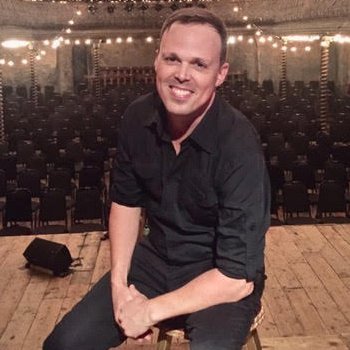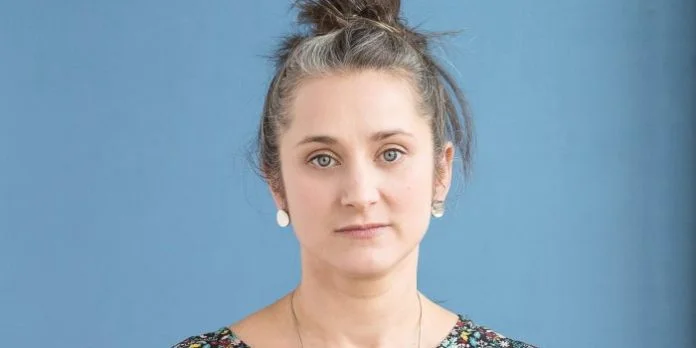In its second year, 2b Theatre will present Springboard again, which artistic director Christian Barry calls a “peek behind the curtain” of the Halifax theatre company’s latest works.
… we want to share with local audiences all the things we’re up to year-round that people don’t know about. – Christian Barry
Originally piloted last year, Springboard serves as a platform for the company to showcase not only its premieres but also works in progress, workshops, and experimental projects. It is a way for the company to maintain a connection with its audience, sharing the behind-the-scenes explorations that shape its productions.
“While our touring shows generate tons of activity across the country and around the world, we want to share with local audiences all the things we’re up to year-round that people don’t know about,” says Barry.
This year, the festival will include Maridzambira by local poet, playwright, children’s author and multimedia artist Shauntay Grant.
A collaborative piece with Zimbabwean artist Hope Masike, the new play with music is set in contemporary Halifax and tells the story of a Zimbabwean-Canadian woman confronting the ghosts of her past through ritual and sacred traditional music. Scheduled for late April as part of Springboard, Barry hints at an “exciting secret location” for the work, which will be announced in the coming days.
Additionally, the festival will feature readings, community conversations, and presentations by emerging artists like Jackson Farifax Perry. “Jackson is our emerging artist in residence right now, and while typically a musician and sound designer, he’s been creating a piece as part of the residency called Tynes,” says Barry.
However, the spotlight is undoubtedly on the world premiere of Red Like Fruit, the newest play by Governor General’s Award-winning playwright Hannah Moscovitch and directed by Barry.

Barry describes the play as a nuanced examination of a journalist’s journey, in which the audience is confronted with the unconventional narrative device of a man telling a woman’s story.
“One of the ways I describe what the show is about is by just sharing the first line of the play, when Lauren comes on stage and says: ‘I’m Lauren, this is Luke. I’ve asked Luke to speak for me’,” says Barry.
“Luke then goes on to tell the audience about Lauren’s recent experience as a journalist, covering the story of a high-profile government official involved in a domestic violence episode,” Barry continues. “But beneath the surface lies an exploration of Lauren’s own truth, prompting her to question the veracity of her own narrative. The play explores what Lauren’s truth has been and how that narrative changes when it is narrated by Luke.”
In a media release, Moscovitch says the play is an opportunity to mess with the audience’s feelings about the role of the male gaze and voice in defining how women feel about their lives. “I’ve realized the patriarchy has made it easy for me to doubt myself, but somehow, when a man says something is true, I accept it,” she says.
Barry elaborated on the significance of this narrative device, highlighting its ability to challenge traditional storytelling conventions. The panel of judges for The Susan Smith Blackburn Prize, the oldest and largest playwriting prize honouring women writing for the English-speaking theatre, recognized this when choosing Red Like Fruit as a finalist this year.
The title, Red Like Fruit, encapsulates the sensual and evocative nature of the play, delving into themes of sexuality, trauma, and empowerment. Barry explains, “The title is a poetic image that speaks to the objectification of sexuality, capturing the essence of the play’s exploration of sensuality, innocence, and nourishment.”
Barry also illuminates Moscovitch’s creative process, emphasizing her ability to draw deeply from personal experiences while crafting a universal narrative. He clarifies that Red Like Fruit is not autobiographical in the traditional sense, yet it draws upon lived experiences to create a profoundly authentic portrayal.
While Moscovtich’s Red Like Fruit may be the big draw for this year’s Springboard, Barry also says the festival is an opportunity “for us to pull back the curtain for audiences to have intimate interactions with the creative artists.” Barry invites audiences to join the Springboard Festival as passive observers and active participants in the creative journey.
2b Theatre presents Springboard at the Bus Stop Theatre (2203 Gottingen St, Halifax) from April 3 to 21. Visit 2btheatre.com for more information.


